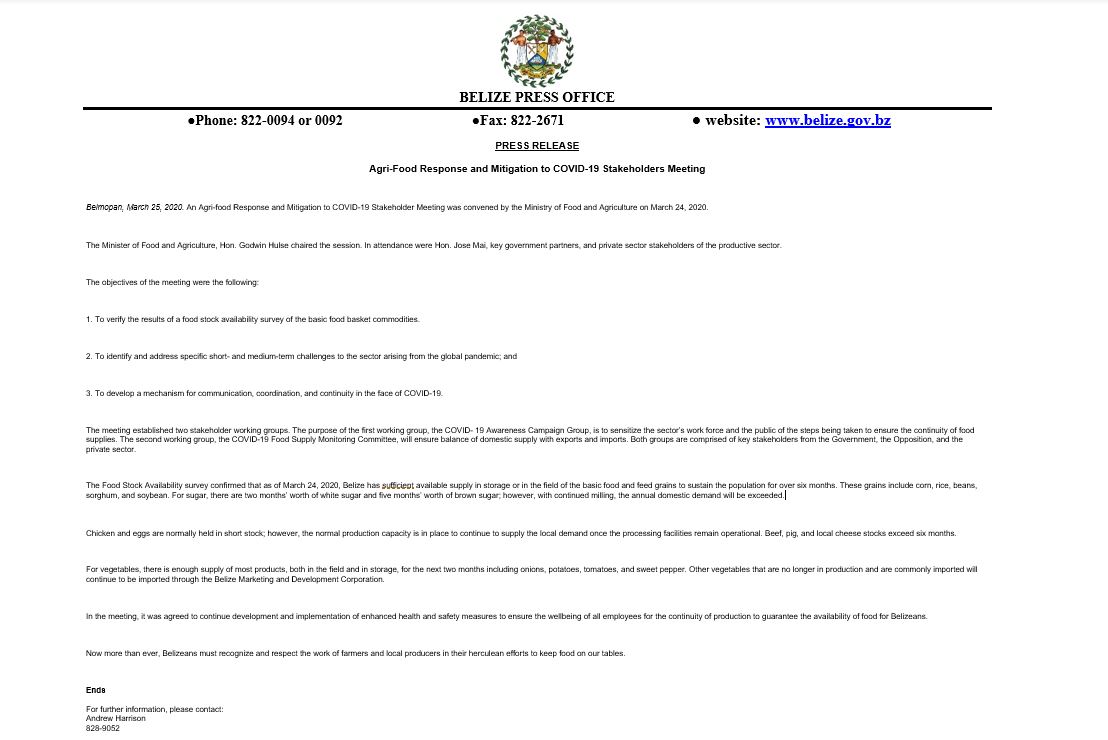An Agri-food Response and Mitigation to COVID-19 Stakeholder Meeting was convened by the Ministry of Food and Agriculture on March 24, 2020.
The Minister of Food and Agriculture, Hon. Godwin Hulse chaired the session. In attendance were Hon. Jose Mai, key government partners, and private sector stakeholders of the productive sector.
The objectives of the meeting were the following:
- To verify the results of a food stock availability survey of the basic food basket commodities;
- To identify and address specific short- and medium-term challenges to the sector arising from the global pandemic; and
- To develop a mechanism for communication, coordination, and continuity in the face of COVID-19.
The meeting established two stakeholder working groups. The purpose of the first working group, the COVID- 19 Awareness Campaign Group, is to sensitize the sector’s work force and the public of the steps being taken to ensure the continuity of food supplies. The second working group, the COVID-19 Food Supply Monitoring Committee, will ensure balance of domestic supply with exports and imports. Both groups are comprised of key stakeholders from the Government, the Opposition, and the private sector.
The Food Stock Availability survey confirmed that as of March 24, 2020, Belize has sufficient available supply in storage or in the field of the basic food and feed grains to sustain the population for over six months. These grains include corn, rice, beans, sorghum, and soybean. For sugar, there are two months’ worth of white sugar and five months’ worth of brown sugar; however, with continued milling, the annual domestic demand will be exceeded.
Chicken and eggs are normally held in short stock; however, the normal production capacity is in place to continue to supply the local demand once the processing facilities remain operational. Beef, pig, and local cheese stocks exceed six months.
For vegetables, there is enough supply of most products, both in the field and in storage, for the next two months including onions, potatoes, tomatoes, and sweet pepper. Other vegetables that are no longer in production and are commonly imported will continue to be imported through the Belize Marketing and Development Corporation.
In the meeting, it was agreed to continue development and implementation of enhanced health and safety measures to ensure the wellbeing of all employees for the continuity of production to guarantee the availability of food for Belizeans.
Now more than ever, Belizeans must recognize and respect the work of farmers and local producers in their herculean efforts to keep food on our tables.
For further information, please contact:
Andrew Harrison
828-9052




